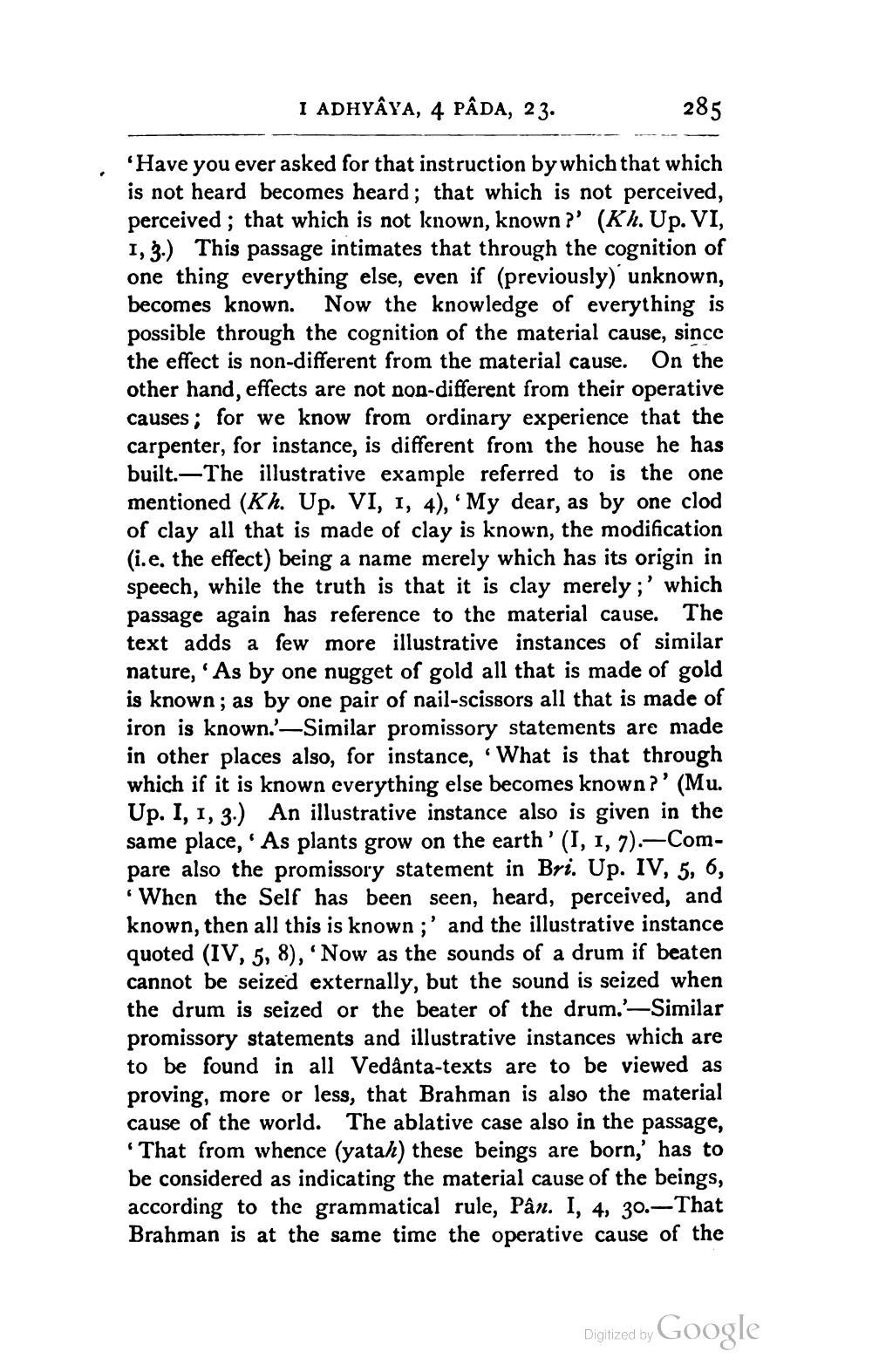________________
I ADHYAYA, 4 PÂDA, 23.
285
'Have you ever asked for that instruction by which that which is not heard becomes heard; that which is not perceived, perceived ; that which is not known, known ?' (Kh. Up. VI, 1, 3.) This passage intimates that through the cognition of one thing everything else, even if (previously) unknown, becomes known. Now the knowledge of everything is possible through the cognition of the material cause, since the effect is non-different from the material cause. On the other hand, effects are not non-different from their operative causes; for we know from ordinary experience that the carpenter, for instance, is different from the house he has built.—The illustrative example referred to is the one mentioned (Kh. Up. VI, 1, 4), “My dear, as by one clod of clay all that is made of clay is known, the modification (i.e, the effect) being a name merely which has its origin in speech, while the truth is that it is clay merely ;' which passage again has reference to the material cause. The text adds a few more illustrative instances of similar nature, 'As by one nugget of gold all that is made of gold is known; as by one pair of nail-scissors all that is made of iron is known.'—Similar promissory statements are made in other places also, for instance, “What is that through which if it is known everything else becomes known?' (Mu. Up. I, 1, 3.) An illustrative instance also is given in the same place, As plants grow on the earth'(I, 1, 7).-Compare also the promissory statement in Bri. Up. IV, 5, 6,
When the Self has been seen, heard, perceived, and known, then all this is known ;' and the illustrative instance quoted (IV, 5, 8), 'Now as the sounds of a drum if beaten cannot be seized externally, but the sound is seized when the drum is seized or the beater of the drum. Similar promissory statements and illustrative instances which are to be found in all Vedanta-texts are to be viewed as proving, more or less, that Brahman is also the material cause of the world. The ablative case also in the passage, “That from whence (yatah) these beings are born,' has to be considered as indicating the material cause of the beings, according to the grammatical rule, Pân. I, 4, 30.—That Brahman is at the same time the operative cause of the
Digitized by Google




